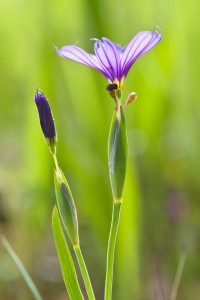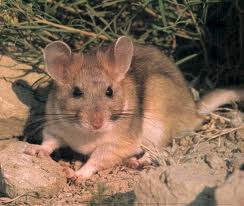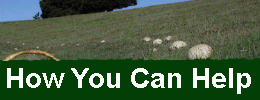During the multiple public hearings leading up to City Council approval of the Zoo’s “conservation” theme park in June, 2011, we heard a lot of talk about the environmental review document for the proposed development. Waving around a City-prepared report that comprised hundreds of pages, some development enthusiasts claimed that the environmental impacts of the project had been subjected to an unusually thorough level of scrutiny. Well, don’t buy it. The problem is that in environmental review, it is quality—not quantity—that really matters. This report is one huge hunk of Swiss cheese: riddled with holes big enough to drive an elephant through.
About Ruth
Ruth Malone is an Oakland resident since 1983, a founding member and co-chair of Friends of Knowland Park and a longtime Oakland neighborhood activist. Since 2007, she has been working to educate and organize environmentalists, park users, and community members to protect the park. In her day job, she is a professor of nursing and health policy at University of California, San Francisco, where she helps students study the links between health and political, social and natural environments, and conducts research on the tobacco industry and its efforts to thwart public health efforts worldwide. Ruth Malone’s Reflections Blog offers a combination of reflective essays and updates from the Protect Knowland Park Campaign, linking the fight to protect Knowland Park to broader environmental and ethical issues.Slow Nature: How the Slow Food movement is related to the effort to protect Knowland Park
The Bay Area is a hotspot for the Slow Food movement. Slow Food started in Italy, a movement aimed at countering the influence of Fast Food by encouraging people to take time to cook and eat meals at home, understand where their food comes from, maybe even grow some of it themselves or buy it from local growers. While everyone likes to grab a quick Fast Food bite once in awhile, Slow Food is about getting back something we lost in turning food into a cheap, high-calorie drive-thru commodity: the whole way that food centers communities and families through sharing the bounty of harvest, eating seasonal fruits and vegetables, cooking together, and talking around the table. It’s about really appreciating food, but also about appreciating our place as human beings—in families, communities, as inhabitants of the natural world that provides our food.
Protecting Knowland Park and the ‘Occupy’ Movement
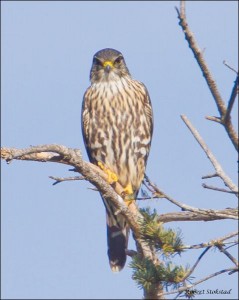 The movement that began with Occupy Wall Street has been criticized for lack of clarity in its agenda, but despite mainstream media coverage suggesting it is unfocused, that agenda has seemed pretty clear to me and many of those I know who support it: Reduce corporate influence on politicians and government policies, address glaring income inequality, attend to the environmental catastrophe of climate change, and re-engage people as citizens, rather than fatuous, self-absorbed “consumers of stuff.” All that may at first glance appear remote from the struggle to protect Knowland Park, but there is an underlying vision that informs both: the possibility of transforming who we are and how our institutions relate to the social and natural worlds. That vision, I think, includes a shift away from regarding everything around us as a resource for making money– toward considering the worth of nature in its own right.
The movement that began with Occupy Wall Street has been criticized for lack of clarity in its agenda, but despite mainstream media coverage suggesting it is unfocused, that agenda has seemed pretty clear to me and many of those I know who support it: Reduce corporate influence on politicians and government policies, address glaring income inequality, attend to the environmental catastrophe of climate change, and re-engage people as citizens, rather than fatuous, self-absorbed “consumers of stuff.” All that may at first glance appear remote from the struggle to protect Knowland Park, but there is an underlying vision that informs both: the possibility of transforming who we are and how our institutions relate to the social and natural worlds. That vision, I think, includes a shift away from regarding everything around us as a resource for making money– toward considering the worth of nature in its own right.
Little Fuzzy Animals: Knowland Park’s Babies Threatened by Zoo Plans
We’ve all been charmed by photos and footage of the latest animal acquisition at the Oakland Zoo and other area zoos. Often these are baby animals, ramping up the “Awww” factor and stimulating us to think about taking the kids on an outing. This is one of the elements that keep people feeling warm and fuzzy about zoos in general: the warm and fuzzy animals that they use for their public relations campaigns. But—particularly with an institution like the Oakland Zoo, with its grand development plans—what that warm fuzzy photo covers over is the exploitation of captive animals at the expense of the wild ones.
There’s Nothing There
 A few months ago, in the heat of our appeals to the Planning Commission and the City Council, I received an email from a supporter of the Zoo’s theme park development plans for Knowland Park. “There’s nothing there,” she said, arguing that this was a reason to develop it. This floored me for a moment. I tried to think how I could explain, but wondered if we just lived in worlds too different for words.
A few months ago, in the heat of our appeals to the Planning Commission and the City Council, I received an email from a supporter of the Zoo’s theme park development plans for Knowland Park. “There’s nothing there,” she said, arguing that this was a reason to develop it. This floored me for a moment. I tried to think how I could explain, but wondered if we just lived in worlds too different for words.
Save Oakland’s Oaks
Expansion Controversy
Search Our SIte
Blog Categories
Regular Bloggers
 Ruth Malone |
 Laura Baker |
 Jim Hanson |
 Mack Casterman |
We support Oakland's public spaces!
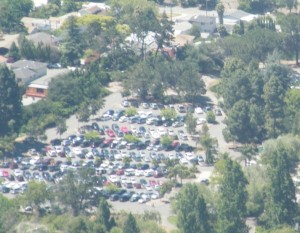
 Follow
Follow